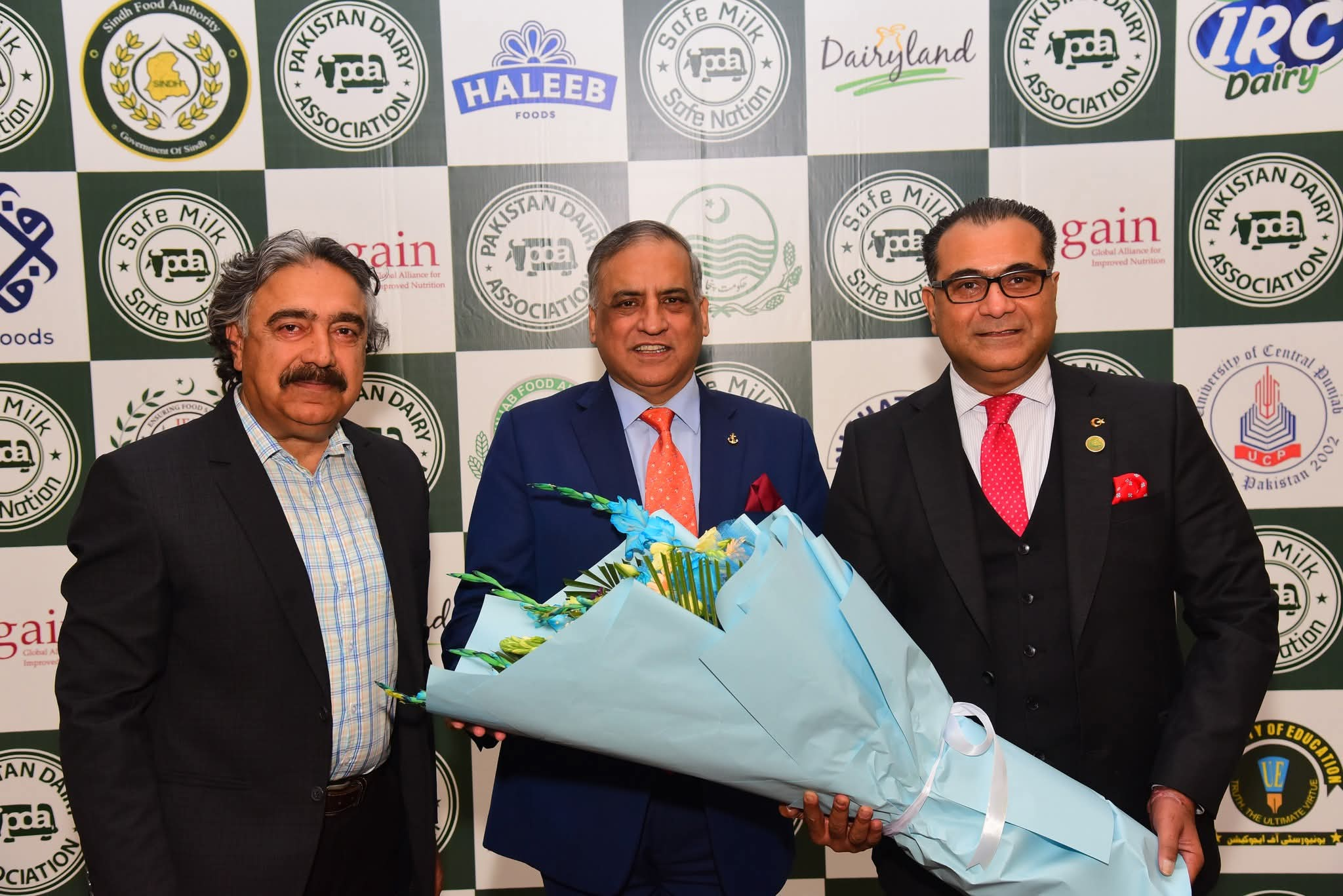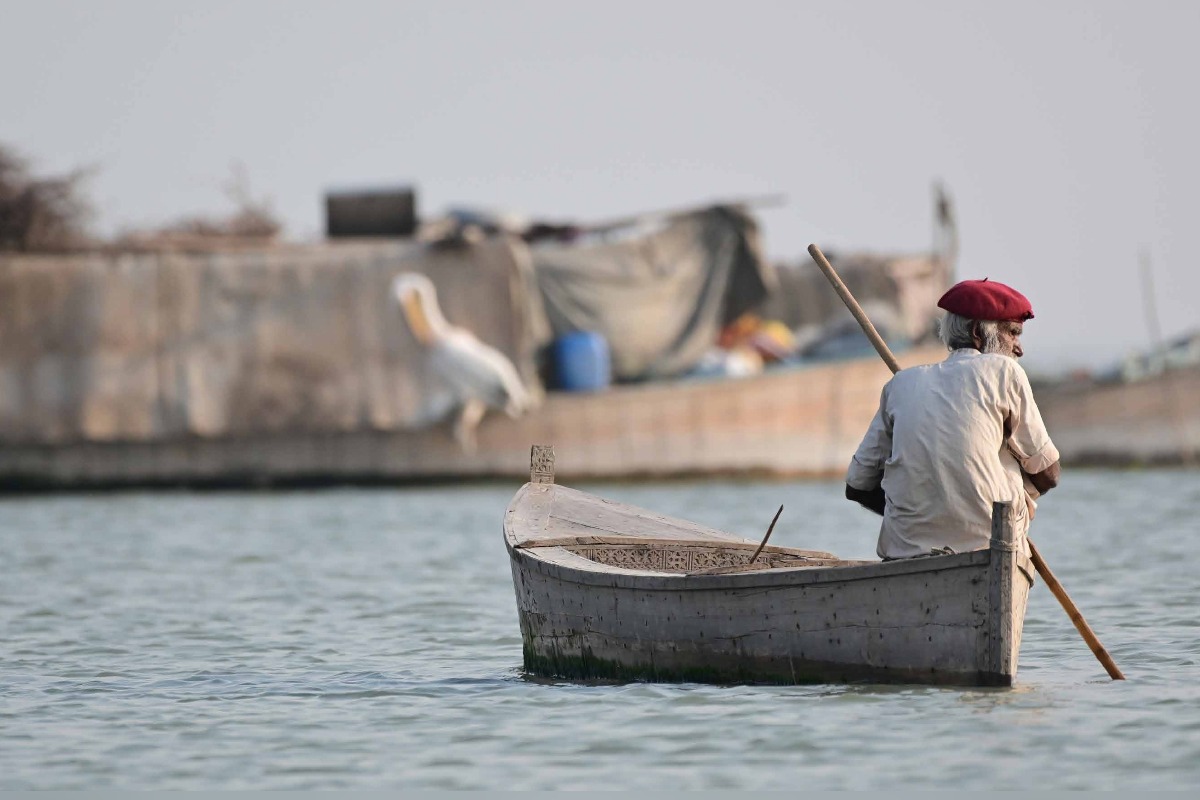In a powerful move to address Pakistan’s growing nutrition crisis and promote safe milk consumption, the Pakistan Dairy Association (PDA) hosted a National Seminar in Lahore in observance of World Milk Day. Held under the theme “Safe Milk, Safe Nation: Affordable Dairy for a Healthier Nation,” the seminar brought together senior government officials, industry leaders, public health experts, and civil society members to chart a national path toward dairy sector formalization and food security.
Opening the event, Dr. Shehzad Amin, CEO of the Pakistan Dairy Association, underscored the far-reaching impact of dairy on national development and individual well-being. “World Milk Day is not just a celebration—it is a global moment to acknowledge nature’s most complete superfood and its profound impact on nutrition, food security, livelihoods, and economic growth. Initiated by the Food and Agriculture Organization of the United Nations, this day honors the tireless efforts of millions of dairy farmers while spotlighting the sustainable development opportunities the dairy sector offers. At PDA, our mission is firmly rooted in ensuring that safe, nutritious, and affordable dairy is accessible to every citizen. We believe—and advocate—that safe milk is not a choice, but a fundamental right of every Pakistani.”
The seminar highlighted the critical role of innovation and private-sector leadership in ensuring dairy quality. Noor Aftab, Director Corporate Affairs – Pakistan & MENA at Tetra Pak, remarked, “Milk is more than daily nutrition—it’s a cornerstone of public health, food resilience, and economic progress. Through advanced technologies and collaborative efforts, we are committed to making safe, affordable dairy accessible to every household in Pakistan.”
Discussions also focused on necessary regulatory reforms, including standardization, certification, and stronger enforcement mechanisms. High-ranking officials such as Jahan Ara Wattoo, Vice Chairperson of the Punjab Social Protection Authority; Dr. Talat Naseer Pasha, DG of PAFDA; Amina Rafique, ADG Technical at Punjab Food Authority; and Saqib Ali Ateel, Secretary for Livestock & Dairy Development, emphasized government strategies to promote milk safety and public health awareness.
Punjab’s Minister for Minorities and Human Rights, Ramesh Singh Arora, emphasized the dire health risks posed by unregulated loose milk and the urgent need to support packaged milk. “Every citizen deserves access to clean, safe, and nutritious milk. Unfortunately, loose milk often contains harmful adulterants like urea, posing serious health risks. Packaged milk, on the other hand, maintains strict quality standards and offers a reliable alternative. The Government of Punjab is acutely aware of the province’s malnutrition challenges and is committed to ensuring safe milk reaches every household. We also recognize the negative impact of the current taxation on packaged milk and are working to address this as part of our broader health and nutrition agenda.”
Minister of State Romina Khurshid Alam reinforced this commitment, stating, “When we talk about health and nutrition, milk stands out as the one element that completes the nutrition cycle. In the fight against malnutrition, a single glass of milk can make a significant difference—it’s one of the healthiest, most complete foods we can provide.”
Representing the private sector, Nestlé Pakistan’s Mian Mitha noted, “Affordable dairy is the right of every citizen. Today, we have two sectors—the formal, packaged milk sector and the informal, loose milk sector. When it comes to consumer health, the formal industry plays a pivotal role in delivering safe, nutritious, and hygienic dairy products. The private sector remains a key driver of innovation and consistency in milk supply across Pakistan.”
Echoing the call for policy reform, Dr. Muhammad Nasir of FrieslandCampina Engro Pakistan Limited delivered a sobering reminder of the consequences of high taxation on packaged milk. “Dairy acts as a social safety net, yet Pakistan’s productivity remains among the lowest in the world. The imposition of 18% GST on packaged milk last year has had severe consequences, leading to the closure of over 500 formal milk processing units and redirecting an estimated Rs. 1.3 trillion in revenue back to the informal sector. This not only undermines nutrition and safety but threatens the long-term viability of the formal dairy industry. We urgently need reforms to the current taxation regime and call for the reversal of GST from 18% to 5% to promote formalization, nutrition, and sectoral growth.”
Usman Zaheer, Chairman of the Pakistan Dairy Association and CEO of Fauji Foods Ltd, closed the seminar with a call for urgent action to prevent a generational health crisis. “I want to thank Minister Ramesh Singh Arora for always standing with the dairy sector and supporting us at every critical juncture. Recently, I was in a meeting with the World Food Programme (WFP), where their research highlighted a deeply concerning issue: stunting affects the neurological development of children, diminishing their cognitive potential for life. This is not just a health concern; it is a national productivity crisis. Over the past two decades, we have witnessed a significant decline in both productivity and physical activity in our population.”
“According to WFP, stunting is costing Pakistan an estimated \$6 billion annually. We must learn from global success stories. For example, China launched a school milk program in 2000 and saw measurable improvements in child growth—0.72 cm in 7-year-olds and 0.46 cm in 9-year-olds. They have successfully tackled malnutrition and micronutrient deficiencies through such initiatives. As Chairman of the PDA, I believe it’s time we ask ourselves: what do we need to do differently to achieve the same for our children?”
The seminar concluded with a technical session titled “Safe Milk and Safe Nation,” which focused on practical steps for ensuring every citizen has access to affordable, safe dairy. By bringing together voices from the public and private sectors, the Pakistan Dairy Association reaffirmed its commitment to building a healthier, more resilient dairy ecosystem for Pakistan’s future.




